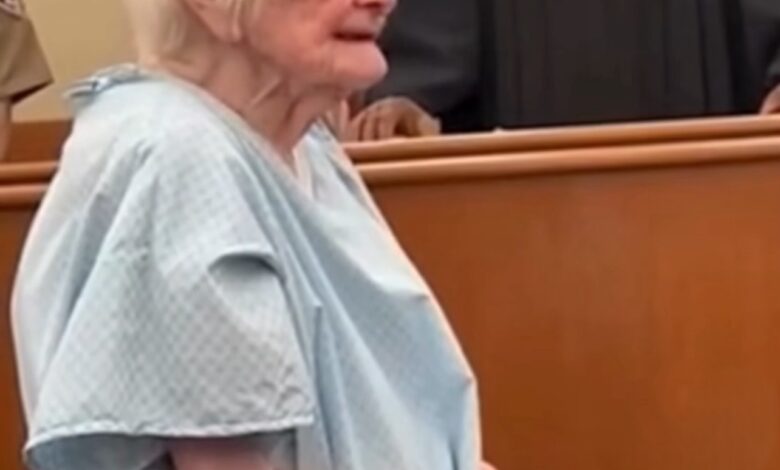H elen and George had been married for 65 years—a lifetime built on love, sacrifice, and survival. At 91 and 88, they still lived by a routine as delicate as the pills that kept George alive. Twelve medications a day kept his failing heart beating. Their monthly co-pay was always $50—barely manageable on their fixed income.
elen and George had been married for 65 years—a lifetime built on love, sacrifice, and survival. At 91 and 88, they still lived by a routine as delicate as the pills that kept George alive. Twelve medications a day kept his failing heart beating. Their monthly co-pay was always $50—barely manageable on their fixed income.
Then everything collapsed.
A single missed payment caused their supplemental insurance to lapse. When Helen went to pick up George’s prescriptions, the pharmacist read the total out loud:
$940.
Not $50. Not something she could bargain with. Something impossible.
Helen walked out empty-handed.
Over the next three days, she watched her husband’s health break down. His breathing turned wet and shallow, his mind confused. She stayed by his side, terrified he wouldn’t survive the night.
Finally, desperation pushed her somewhere she never imagined she would go.
Helen returned to the pharmacy. While the pharmacist was turned away, she reached for the boxes. Her hands trembled. She whispered, “I’m sorry,” as she slipped them into her purse and headed for the exit.
She didn’t make it five steps.
The sensors beeped. The manager stopped her. Police arrived.
At the station, while they processed her for felony theft, her blood pressure spiked so high they feared a stroke. She was rushed to the hospital.
And that’s how she ended up in front of a judge the next morning—in a thin hospital gown, wrists shackled, looking smaller than ever at the defendant’s table.
“I never thought I’d see a day like this, your honor,” she whispered.
Judge Marcus looked at the paperwork. Then he looked at her. His face fell—sorrow, disbelief, and something close to anger tightening his expression.
“Bailiff… get those chains off her.”
He turned to the prosecutor.
“Felony theft? For this woman?”
Helen broke down.
“He couldn’t breathe… I didn’t know what to do. He’s all I have. I just needed his medicine.”
The courtroom went silent.
The judge didn’t hesitate.
“This is not a criminal,” he said, voice echoing.
“This is a failure of our system.”
He dismissed every charge.
But he didn’t stop there.
He called an immediate recess, ordering his clerk to contact the hospital’s social work department from the bench.
“Mrs. Miller is to be returned to the hospital and will not be billed. And a social worker will go to her home today to get Mr. Miller the medication he needs and enroll them in emergency assistance.”
His final words carried the weight of a man who had seen too much injustice to stay silent:
“We will not let this happen.”

